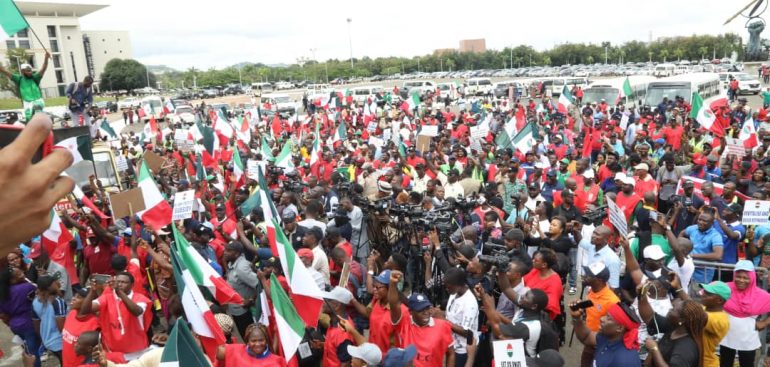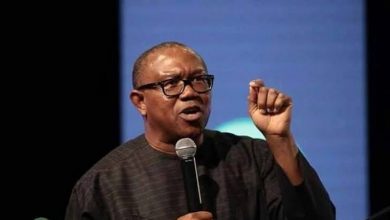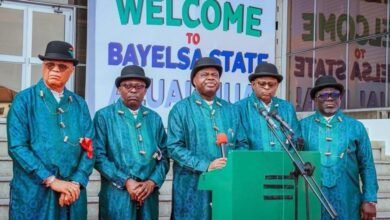
There are times when it becomes absolutely necessary to empathize with Nigerians over situations that are manifestly adverse. However, sympathy or empathy does not mean overlooking reality. Honestly that is the situation we are in with the recent tariff adjustment by the telecommunication operators in Nigeria today. Nigerians may be famous for being resilient, but any increase in cost of living stretch such resilience further.
But looking at the situation realistically one must be honest in accepting that the dangers of denying the Telecom Operators a cost reflective tariff adjustment at this point in time may be more costly to the consumers in the long run than allowing them adjust their tariffs. Expansion of access and service efficiency are more important even to the consumers than keeping a cap that blocks expansion and better quality service. Perhaps allowing them to adjust their tariff to reflect their operational cost and guarantee return on investment may not only be a better option at the moment but the only one necessary.
Unfortunately that is not the kind of language and reasoning most Nigerians want to hear. As a consumer who relies on the networks even for my work, I am a victim of the adjustment too. But I am courageous enough to look at the bigger picture and empathize with the investors in the sector as much as I do the consumers. I am sure the National Communication Commission as the regulator may have had extreme difficulty in the balancing act of protecting consumers while evaluating the fears and contentions of the investors. I wish I had access to the NCC, I would have asked them a number of questions particularly concerning how they were able to navigate the complex balancing act required to approve a tariff adjustment at this point in time.
I am sure it has been a difficult decision to take. However these may not be the real reasons for my intervention though. At the risk of being labeled an apologist for officialdom, I make bold to say my intervention is prompted by the threat from the Nigerian labour Congress to hold a protest on the 4th of February 2025. I keep asking myself, when has the Labour movenment in Nigeria become so shallow and unitellectual in their operations to behave so unintelligently? An educated and well informed Labour movement would have adopted a more pragmatic approach to such issues. Their arguments would have been more robust beyond the narrow prisms of grand standing, attention seeking and empty rhetoric.
First of all before the Labour center intervenes, the affiliates grounded within the sector would have provided meaningful discussions on the subject matter. Recall how NUPENG and PENGASSAN used to educate Nigerians on the petroleum industry. What are the unions in the telecom sector saying? Why is NLC as the Labour Centre leading a protest without engaging the public on the real issues in contention. For example the last time a tariff adjustment was carried out in Nigeria was in 2013. That is more that a decade ago. What were the operational costs then and what is it today. As a mater of fact what were the dynamics of the telecommunications ecosystem then, and what is it now?
For sure by 2013 data services were on the margins of the telecom operations. Internet penetration was low. Number of internet enabled devices were fewer. Smart devices were even far fewer. Number of subscribes were also lower than today. Reliance of some sectors like banking on the internet was equally lower than it is today. So how come labour or anyone will expect the telecom sector to freeze on a time frame when every other thing had gone up?
Let me start from the area that should concern Labour the most. In 2013 the minimum wage was 30 thousand Naira. Today it is 70 thousand Naira, more than double the amount in 2013. Other operational cost like the cost of fuel, value of the Naira in dollar terms and electricity tariff have all gone up. Will it not be unfair to expect the Telecom Industry to stagnate and not respond to these realities? I am not holding brief for them, but I believe that as private sector players if there is no return on their investment they may be forced to divest from the economy. After all we still remember that Econet, V-mobile and Etisalat have all divested from the sector. Will labour want that to happen? Or in the alternative will they rather the operators lay-off staff and scale down operations?
By the way, will the labour movement had kept quite if Telecom operators refuse to implement the minimum wage? Is it fair to ask someone to increase his operational cost without a corresponding fair increase in income? The telecommunication industry has become vital to the economic well being of the nation. So many other sector have grown to be dependent on the telecom services for both their functions and operational efficiency. The banking sector today will definitely suffer major setback without the back-up of the telecom sector. To that effect, the role of the telecom sector in job creation is beyond just its own industry. It is cross-cutting, involving practically all sectors of the economy. For example, apart from calls and data services, the POS operator in the remotest village will be jobless without data from the telecom operators.
In view of this, what the labour movement should have done is first to request its affiliates within the Telecom sector to dissect the dynamics of the sector in a manner that citizens will understand. How much in terms of costs goes into one minute of calls or one unit of data? How does it compare to the units charged as tariff? In doing so, let them take all variables into consideration. Take the transmission towers for example, almost all of them work on diesel powered generators. Each requires a minimum of three security personal on site at any point in time due to several factors particularly the raging insecurity in the country. Despite that, from time to time bandits and other miscreants attack and vandalize the towers and other installations.
There are many other components and infrastructure that are required for the functioning of the sector which are absolutely essential. Unfortunately most of them are not available locally and must be acquired abroad using hard currencies whose value had gone up. Some of us are more inclined to express the genuine fear that if pushed too hard within an environment that is non-sustainable, investors in the sector may become too uncomfortable and be prompted to withdraw their investments and go elsewhere.
What organized labour and anyone genuinely concerned about the Telecom sector should be advocating for is an affordability template that respects value on investment. In such a situation the key factors required of the service provider after the tariff adjustment should be service efficiency. The operators must expand their facilities and improve access and quality of service. It is for this reason that the Labour Movement and indeed all patriots should demand that the Regulator must ensure that there is service efficiency across the whole country not just the urban centers. Since it is possible to monitor usage such as call time and cost on one’s personal devices, the regulator must also create a window for consumers to lay complaints through digital means in real time.
Nigerians need to extract assurances from the NCC that if complaints are escalated to them it will be attended to immediately. Let all tariffs be a function of service efficiency. Labour and indeed all Nigerians are to task NCC and Telecom Operators to provide tariff information and conditions affecting consumption patterns. That way consumers can easily manage their consumption patterns and extract maximum value for money spent. To that effect Labour should insist on the provision of enhanced infrastructure that will lead to growth and service provision to all undeserved areas. While investors in the sector are asking for cost reflective tariff system, consumers on the other hand should be demanding for value for money tariff system.
Realistically I would rather that the Labour Movement focuses on these issues rather than some ill-conceived protest that is just mere grandstanding. Over the years the current Labour Movement had been suffering from increasing erosion of public confidence in their antics. The Nigerian public is much wiser today.
Come the 4th of February, labour leaders will come to realize that the scales have since fallen off the eyes of the gullible public. No one will join them on that misadventure, not even most of the workers. The reason is simply that painful as the tariff adjustment may be, the argument in its favour is more compelling to any rational mind. And if in the extreme, the Telecom Operators decide to divest from Nigeria, the consequences is better imagined than witnessed. On the planned protest of 4th February the NLC is riding a lame horse. The NCC acted in the best interest of Nigeria and Nigerian





